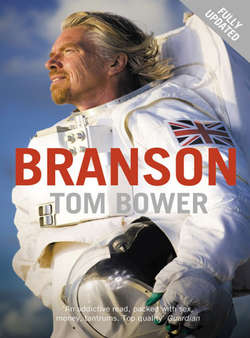Читать книгу Branson - Tom Bower - Страница 6
Preface to the 2008 Edition
ОглавлениеSir Richard Branson did not appreciate this unauthorised biography when it was originally published in 2000. Indeed, to prevent its publication, he took exception to a critical article which I had written for the London Evening Standard about his first bid for the National Lottery, and decided to issue a writ for defamation against myself, but not against the newspaper. Some interpreted this as an attempt to put me under financial pressure to settle the case in his favour. Had it succeeded, the credibility of this biography would have been destroyed even before its publication. Eventually, without my having offered any concession or agreeing to any of his demands, Sir Richard withdrew his complaint and his case was abandoned. The legacy was twofold. The rulings by Mr Justice Eady and the Court of Appeal during the lengthy hearings of Branson vs Bower have become enshrined as a cornerstone of British libel law. Newspapers, publishers, journalists and authors are, in some circumstances, now protected in publishing critical comment so long as the author wrote in good faith.
The second legacy was the generation of enormous publicity, which propelled the success of this book. Following his recent successes in the libel court, Sir Richard had apparently anticipated another scalp. Yet over the following months many concluded that he had scored a spectacular own-goal.
Throughout the world, those interested in the Branson phenomenon were alerted to an alternative interpretation of a remarkable career. Over the past eight years I have received a steady stream of enquiries and congratulations as a result of this biography of the controversial tycoon. With some nostalgia I recall listening to BBC Radio 4’s World at One and hearing Sir Richard’s triumphant boast outside the Royal Palaces of Justice in Fleet Street after his libel victory against Guy Snowden, the chairman of Camelot, a rival bidder for the original lottery licence. ‘My mother taught me to always tell the truth,’ Branson told his excited audience.
This book was to cast an objective interpretation on his career just as his bid for the National Lottery was being reconsidered after a bitter court case. To Branson’s distress, the original decision to award him the lottery licence was overturned. Partly, he knew, this book’s revelations had turned opinion against him. Now, eight years later, Branson’s recent activities, self-promotion and solecisms, especially during his bid for the distressed bank Northern Rock, have warranted an updated version of the original book.
Over the past eight years I have occasionally been invited to write articles for newspapers about Branson. Each article automatically provokes Branson to complain about ‘multiple inaccuracies’ and demand the publication of his version of the truth. Invariably, identical facts provoke starkly different interpretations. My articles published during his bid for Northern Rock especially provoked his ire. I did not think that his controversial past justified the government’s original decision to entrust over £50 million of taxpayers’ money to the Virgin group. For whatever reason, the government finally agreed with me. The loss of Northern Rock could be as grave a blow to Branson’s fortunes as his failure to win the Lottery licence.
Sir Richard nevertheless remains one of the world’s most popular tycoons. Countless ambitious and intelligent young people, aspiring to become successful businessmen, voraciously read his autobiography and other publications in their attempts to understand the secret of his success. If they believe that his version is the Holy Grail, they are mistaken. During my own career following the lives of other tycoons including Robert Maxwell, Mohamed Fayed, Tiny Rowland, Geoffrey Robinson and Conrad Black, one common denominator has always emerged. An important element of their success has been the myths generated to conceal their aggressive journeys up the greasy pole. Similarly, once they bask in the spotlight, they share a brazen aggression to maintain their version of the ‘truth’ against those posing honest questions. However outstanding a personality Branson may be, he is weakened by his forceful attempts to silence his critics and his victims; and it is the latter, his hapless business partners, who remain frustrated by his remorseless success.
Eight years ago, Branson had reached a precipice, and his empire’s prosperity was endangered. Brilliantly, his juggling snatched victory from possible defeat. Now, once again, his fortunes are challenged. Whether he can stage another resurrection is a tantalising question. The Branson rollercoaster never stops.
Tom Bower
London, July 2008
